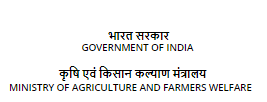A biopesticide formulation for controlling insect pests and fungal pathogens and process for preparation thereof

Background:
Indiscriminate application of chemical pesticides leads to generate poisonous substances affecting the whole environment. Moreover, there is diversion from chemical pesticides to safe and bio-based molecules. Lot of chemical pesticides are applied on vegetables, and these vegetables are harvested off and on, without bothering for waiting periods of applied chemicals. Increased use of chemical pesticides are also creating resistance in the crop pests. A traditional knowledge, practiced by farmers, could essentially be a component of integrated pest management to reduce the dependence on chemical pesticides and ecological deterioration. The technology would be socially acceptable, economic viable and environmentally friendly.
Technology Details
CONEEM, a cow urine based herbal formulation, has been developed with effective plant growth regulator properties, which has been patented in India Patent House, during February, 2018. The product had been tested under lab as well as field for tomato crop, for successive two years, at IARI fields of Agronomy Division. The product was also observed to have properties of controlling lepidopteran insect pests and various pathogenic fungi of tomato crop, as per the patent. One of the lab reports of IARI confirmed presence of good amount of macro as well as micro nutrients in the product, necessary for crop growth. The tomato crop was raised on zero input (no fertilizer or chemical treatment) for both the years, and produced substantial yield of the fruits, with negligible damage (loss due to pest attack) to the produce. The patent thus amounts to value addition of easily available botanicals and waste products of animal origin, and is an innovative plant growth regulator, besides properties of pest management during organic as well as IPM farming. A thorough literature search reviewed that no such product has been patented in our country till now. This formulation was observed to give promising results in controlling tomato fruit borers in the field giving substantial yield of the produce. It could control 70-80 % of fruit borers as compared to check plots. The observed yield in Pusa hybrid 2 variety indigenously treated tomato fields was 32 t/ha as compared to 15 t/ha in check plots and 17 t/ha in organically treated plots. The main aim of this study was to reduce the load of synthetic chemical pesticides thereby opting traditional knowledge as essential and alternate component of pest management for tomato crop and to realize the qualitative and quantitative production with pesticide residue free crop both for domestic and export market. The foremost requirement for the production of the product is availability of cow-urine and dung of indigenous breed. These can be arranged from a Gaushala, or from cows, kept for rearing at cattle farm. Rest of the items can be easily, made available. Containers are also required for keeping the extract for fermentation.


